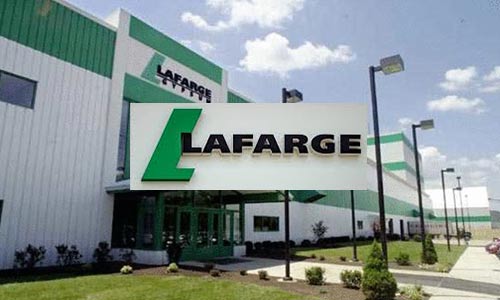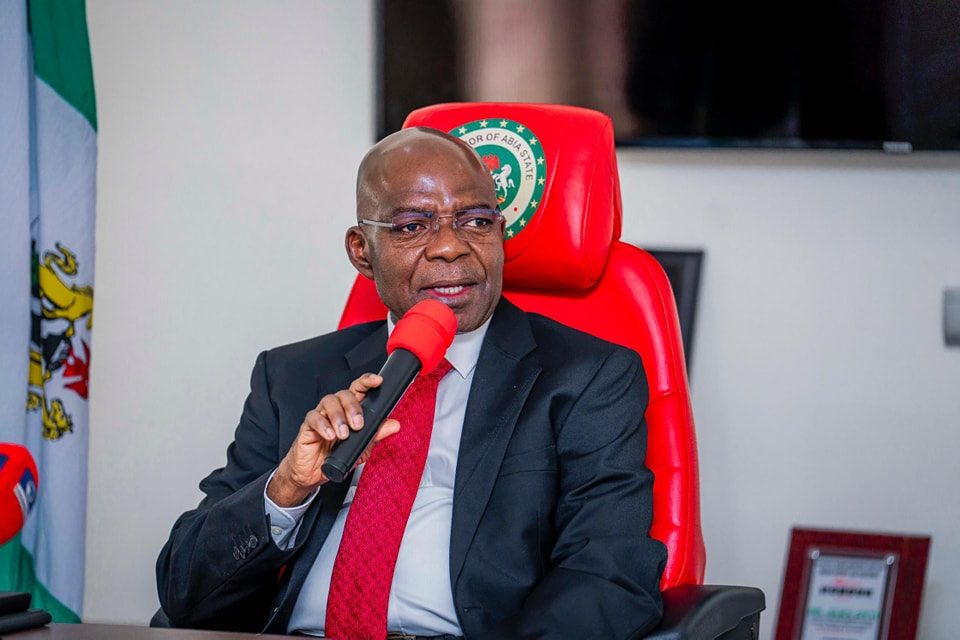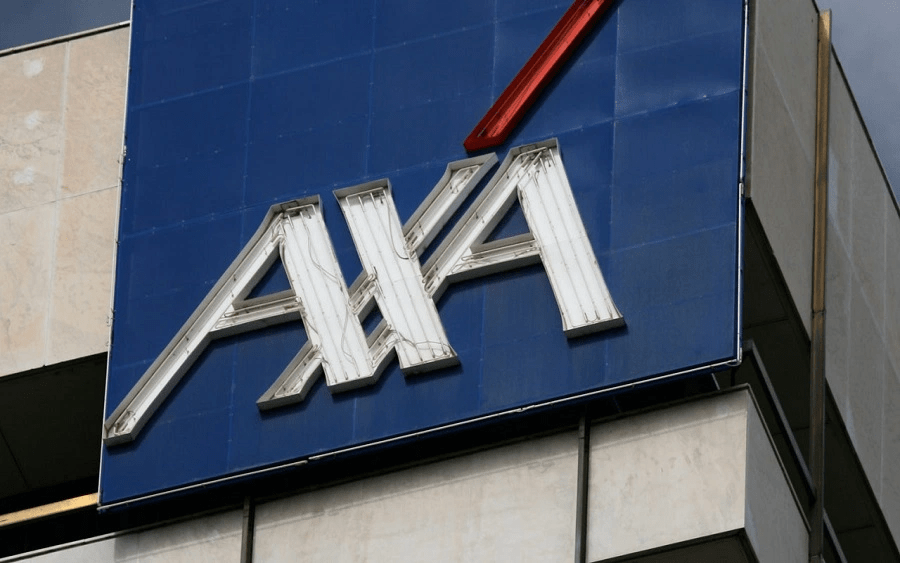Ebaide Omiunu
Climate change impacts are not abstract future scenarios; they are present realities devastating communities across the developing world. In Nigeria’s coastal regions, rising sea levels pose a threat to fishing livelihoods that have sustained families for generations. Across the Sahel, prolonged droughts force smallholder farmers to abandon ancestral lands. In Africa’s rapidly urbanising centres, inadequate drainage infrastructure leaves informal settlements submerged after heavy rains, displacing thousands.
These frontline communities possess intimate knowledge of their changing environments and often demonstrate remarkable innovation in developing locally appropriate adaptation strategies. What they critically lack is not ingenuity or commitment, but access to the financial resources necessary to scale their solutions from promising pilots to sustained impact.
This resource gap makes the Green Climate Fund (GCF), established as the world’s largest dedicated climate finance mechanism with over $10 billion in pledged resources, essential to achieving global climate resilience. Yet a fundamental disconnect exists between the GCF’s mandate to support climate action in vulnerable countries and the accessibility of its funding mechanisms for grassroots actors who are closest to climate impacts. This misalignment threatens not only local communities but the achievement of global climate goals themselves.
The Accessibility Paradox: Institutional Bias in Climate Finance Architecture
The GCF has established multiple access modalities, including direct access pathways designed to strengthen national and regional institutions. However, these mechanisms systematically favour actors with substantial technical capacity, established institutional frameworks, and administrative resources: national governments, multilateral agencies, and large international NGOs.
This institutional architecture creates what development economists would recognise as a classic principal-agent problem. The very characteristics that enable organisations to navigate complex GCF accreditation and proposal processes —bureaucratic sophistication, technical specialisation, and centralised operations — often correlate inversely with proximity to affected communities and understanding of local adaptation needs.
The consequences are measurable. Youth-led organisations, women’s cooperatives, grassroots civil society groups, and community-based organisations find themselves systematically excluded by:
• Scale thresholds that exceed both their operational capacity and actual funding needs
• Accreditation requirements that can require 2-4 years and substantial institutional investments to achieve
• Proposal complexity demanding technical expertise in climate science, financial modelling, and results-based management frameworks
• Co-financing requirements that assume access to complementary funding sources unavailable to most grassroots actors
The result is a climate finance ecosystem where funding flows through traditional institutional channels while the most vulnerable and often most innovative communities remain chronically underserved. This represents not merely an equity failure but an efficiency failure, leaving vast reservoirs of local knowledge, community trust, and adaptive capacity untapped.
The Economic Case for Small-Scale Climate Investment
Financial decision-makers increasingly recognise that climate resilience cannot be built exclusively through large-scale infrastructure and national adaptation programs. Community-level interventions offer distinct advantages that complement macro-level investments:
Superior Cost-Effectiveness Ratios
Small-scale climate projects consistently demonstrate exceptional return on investment. Consider these comparative economics:
The Climate Teen Hub, a youth-led initiative under The Ebaidebheki Initiative in Nigeria, successfully planted 300 trees in partnership with the Young African Leaders Initiative (YALI) toward Nigeria’s 1-million-tree goal. Their model demonstrates that $25,000 can facilitate planting 5,000 trees when implemented through community structures, a cost per tree that large contractors cannot match due to overhead costs.
In Nigeria’s Federal Capital Territory, climate advocate Doreen Oho has identified that $15,000-20,000 could establish climate democracy councils across all six area councils, training 50 smallholder farmers in climate advocacy and financial literacy. This investment would create permanent governance structures that connect farmers directly to adaptation funding and policy decisions.
This institutional infrastructure typically requires 10-100 times more investment when built through conventional development programming.
In Somaliland, journalist and development practitioner Umalkhair has demonstrated that $10,000-20,000 can establish comprehensive training programs for grassroots communities in climate-smart livelihoods, gender-responsive adaptation, and connecting local action to international advocacy platforms.
The multiplier effects: trained trainers who cascade knowledge through existing social networks create an exponential reach that is impossible for centralised programs to achieve at a comparable cost.
In Kenya, architect Maryam Wangeshi’s UrbanBetter Nairobi Cityzens Hub uses participatory air quality monitoring to empower youth advocacy for climate-resilient urban planning. A $20,000 investment would train 50 young people as civic documentarians, creating open-source methodologies that other African cities can replicate at minimal cost—essentially funding the development of scalable public goods.
Through HEELA GREEN RESOURCES, environmental educator Uzochukwudinma Awele Otakpor trains women in internally displaced persons camps to convert biomass waste into briquette fuel for improved cook stoves. A $10,000 grant covers training, materials, and equipment to establish income-generating enterprises that simultaneously reduce deforestation pressure, improve indoor air quality, and provide energy access.
The intervention addresses climate mitigation, adaptation, gender equity, and poverty alleviation simultaneously, an integration difficult to achieve in solo programming.
High Social Returns and Co-Benefits
Beyond direct climate outcomes, community-led projects generate substantial co-benefits:
• Enhanced social capital through participatory processes that strengthen community cohesion
• Gender equity, as projects often prioritise women’s leadership and economic empowerment
• Youth engagement, building climate literacy and agency among the next generation
• Democratic capacity as communities develop skills in advocacy, budgeting, and governance
• Local economic development through employment and skill-building that strengthens resilience beyond specific project interventions
Inherent Scalability Through Replication
Well-documented small-scale models can be replicated across similar contexts at marginal cost. Unlike infrastructure projects requiring substantial capital investment in each location, community-based methodologies can spread through knowledge transfer, peer learning networks, and technical assistance—essentially allowing successful pilot investments to generate returns far beyond their initial deployment site.
Superior Local Ownership and Sustainability
Projects that emerge from authentic community needs and are designed by local actors consistently demonstrate higher sustainability rates than externally designed interventions. Community ownership ensures maintenance, adaptation to changing conditions, and integration with local governance structures, all of which are critical for long-term resilience.
Structural Barriers: Why Promising Models Cannot Scale
Despite compelling evidence of impact, small-scale climate actors face systematic exclusion from GCF resources:
Capacity Asymmetries
The GCF accreditation process requires fiduciary management systems, environmental and social safeguards frameworks, and gender policies. While these are entirely appropriate for large-scale financial intermediaries, they represent insurmountable barriers for community organisations whose entire annual budgets may be smaller than the consulting fees required to develop these systems.
Information Asymmetries
Knowledge about GCF funding windows, application procedures, and technical requirements remains concentrated among development professionals. Grassroots organisations often lack awareness of available opportunities or understanding of how to position their work within GCF’s strategic priorities and results frameworks.
Intermediary Market Failure
The current ecosystem lacks sufficient localised intermediaries capable of effectively channelling micro-grants to grassroots actors while maintaining fiduciary standards. International NGOs often lack the local embeddedness and community trust necessary for authentic engagement. National institutions may lack incentives to support small-scale actors. Regional development banks typically focus on larger infrastructure investments.
This intermediary vacuum means that even when political will exists to support small-scale action, operational pathways to deliver funding efficiently and accountably remain underdeveloped.
Pathways to Reform: A Pragmatic Agenda for Inclusive Climate Finance
The GCF possesses both the mandate and institutional flexibility to address these structural barriers. Several reforms could dramatically expand access while maintaining fiduciary integrity and impact effectiveness:
1. Dedicated Small-Scale Funding Windows
Establish streamlined access modalities for projects requesting $20,000-500,000, featuring:
• Simplified proposal formats appropriate to project scale and organisational capacity
• Expedited review processes with 60-90 day decision timeframes rather than 12-18 month cycles
• Proportionate due diligence matching fiduciary requirements to funding levels
• Technical assistance grants to support proposal development for promising applicants
This approach follows successful models from the Global Environment Facility’s Small Grants Programme, which has demonstrated that simplified procedures need not compromise accountability or results.
2. Strategic Intermediary Partnerships
Partner with credible regional and local organisations to serve as financing intermediaries:
• Regional youth networks with established presence and community trust
• Women’s associations experienced in small enterprise support and community mobilisation
• Community development financial institutions combining local knowledge with financial management capacity
• Established civil society platforms with track records in grassroots engagement
These partnerships can reduce transaction costs while ensuring cultural competence and community accountability. Clear service agreements can define roles, responsibilities, and performance expectations while respecting intermediary organisations’ autonomy and local expertise.
3. Integrated Technical Assistance
Follow successful microfinance models by coupling funding with capacity development:
• Pre-award support helping promising organisations develop competitive proposals
• Implementation assistance providing technical advice on project execution, monitoring, and adaptive management
• Organisational development, strengthening financial management, governance, and strategic planning
• Network facilitation connecting grantees for peer learning and collaborative problem-solving
This approach recognises that capacity constraints often reflect resource limitations rather than fundamental organisational deficiencies. Appropriate support can unlock latent potential while building sustainable institutional capabilities.
4. Catalytic Finance Mechanisms
Design small grants as seed funding that position community projects to attract complementary resources:
• Blended finance structures combining GCF grants with private sector investment, government co-funding, or philanthropic capital
• Results-based payments that enable performance-based financing from additional funders once projects demonstrate proof of concept
• Guarantee facilities that reduce perceived risks for commercial lenders or impact investors
• Knowledge products documenting successful models to facilitate replication funding
This approach multiplies GCF impact while building sustainable financing ecosystems around community-led climate action.
5. Adaptive Performance Frameworks
Develop monitoring and evaluation approaches appropriate to small-scale, community-driven interventions:
• Participatory metrics reflecting community priorities rather than exclusively standardised indicators
• Qualitative documentation capturing process changes, capacity development, and governance improvements alongside quantitative outcomes
• Rapid learning cycles enabling projects to adapt approaches based on emerging evidence
• Portfolio-level assessment evaluating aggregated impact across multiple small projects rather than demanding individual project-level measurement of macro climate outcomes
The Strategic Imperative: Why Climate Finance Inclusivity Matters for Global Goals
Supporting small-scale climate action is not merely a matter of equity or participation; it is strategically essential for achieving global climate objectives:
National adaptation cannot succeed without local implementation. National Adaptation Plans and Nationally Determined Contributions require community-level action for effective implementation. Without grassroots engagement and locally-driven adaptation, national strategies remain abstract commitments disconnected from lived realities.
Innovation emerges from frontline experience. Communities facing immediate climate impacts are natural laboratories for adaptation innovation. Their experimental approaches, refined through trial and error, often prove more contextually appropriate than externally designed solutions. By excluding grassroots actors from financing, we constrain the innovation pipeline essential for adaptive management in rapidly changing conditions.
Trust and legitimacy require inclusive engagement. Climate finance mechanisms that systematically exclude affected communities undermine the legitimacy of global climate governance. Inclusive approaches build confidence, strengthen political support for climate action, and ensure that adaptation efforts reflect the priorities of those most affected.
Efficiency demands appropriate financing instruments. Not all climate challenges require multi-million dollar interventions. Many adaptation needs, such as early warning systems, seed diversity conservation, and community-based natural resource management, are most efficiently addressed at local scales. Attempting to deliver these through large centralised programs introduces unnecessary transaction costs and coordination challenges.
A Call to Institutional Leadership
The Green Climate Fund stands at a critical juncture. As climate impacts intensify and adaptation needs multiply, the GCF must evolve beyond its initial architecture to embrace truly inclusive climate finance. This evolution requires neither abandoning fiduciary standards nor compromising impact effectiveness. Instead, it demands recognising that diverse climate challenges require diverse financing modalities.
The examples highlighted in this analysis, from youth-led reforestation in Nigeria to civic advocacy training in Kenya to women’s enterprise development in IDP camps, demonstrate what becomes possible when appropriate financing reaches capable local actors. These are not feel-good stories at the margins of climate action; they represent scalable models that, if adequately supported, could transform adaptation outcomes across vulnerable regions.
For institutional investors and climate finance decision-makers, the question is not whether small-scale climate action delivers value, as the evidence is overwhelming.
The question is whether our financing architectures will evolve to support this value creation or whether structural barriers will continue constraining our collective capacity to build climate resilience where it matters most.
The communities most vulnerable to climate change cannot wait while bureaucratic processes evolve incrementally. The urgency of climate impacts demands commensurate urgency in making climate finance accessible, agile, and inclusive. The Green Climate Fund has both the opportunity and responsibility to lead this transformation.
Suppose climate finance fails to reach the last mile. In that case, if it cannot empower the communities on the frontlines of climate change, our global climate goals will remain perpetually out of reach, regardless of the scale of our financial commitments. The time for democratized climate finance is now, and institutional leadership from the GCF could catalyse a fundamental shift in how the world supports climate resilience at every level.




